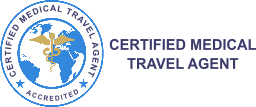Health and wellness tourism is an emerging industry, and facilitators can get unflattering outcomes from their efforts if they don’t do their due diligence and study critical aspects of the industry. Every startup needs to examine what tasks can be done in-house and what tasks need to be outsourced for a better workflow. So, in this spirit, we give you these secrets to starting a successful medical tourism company from scratch:
1.) Cutting Business Costs: Where Do I start?
The key to any prosperous venture or business startup is cutting costs and saving as much money as possible so that you can reinvest the profits back into the business for maximum growth.
Sometimes, spending funds on outsourcing services is wise, and cutting costs in the wrong areas can lead to more losses than gains. Think about the pros and cons of spending on outsourcing or doing the task yourself. Do a cost-benefit analysis to see if it is worth it to cut costs in certain areas. One area this can be applied to is your business location. At the beginning of your medical tourism career, it’s a wise idea to hold off on buying office space. A brighter idea would be to cut startup costs by setting up a small home office in a spare room.
2.) How Outsourcing Promotes Business Growth
There are certain things you may just not be equipped to handle yourself and will have to outsource as a startup. Things such as:
– Website and graphic design
– Business contracts
– Marketing and lead generation
These are professions within themselves and are not everyone’s forte. There is a certain way to do these things that will make them effective, and so you need to let the professionals handle these. Otherwise, they will be useless. Unfortunately, some facilitators have had fruitless outcomes because of a low-performing website or not being able to attract enough clients to make a profit.
3.) Contractual Agreements with Patients and Hospitals
It is essential not to leave yourself open or be vulnerable to liability; there are many moving pieces when coordinating an international medical trip. For this reason, you need systems in place to protect your business. It is crucial to have a patient waiver contract signed by each of your clients, acknowledging that they know and understand the risks of receiving medical treatment abroad.
Having the proper contractual agreements with your network of healthcare providers is also essential. Using the appropriate contracts will significantly lower your liability and outline your list of demands from your partners. Remember, this is your business, your livelihood, and it is your right as well as your duty to protect it.
4.) Medical and Wellness Tourism Certification
When you are a beginner in global healthcare, it may not be easy to gain credibility. Often, potential clients prefer to work with health tourism agencies that have a known brand name. However, as a startup, you can show trust symbols such as medical and wellness tourism certification logos on your website and social media platforms to display that a third-party organization has verified your company. Earning an accreditation will boost your status as a facilitator and garner trust from prospects.
Getting certified in medical and wellness tourism also teaches you “best practices” when corresponding and interacting with prospects. If you say or do things in an unprofessional, ineffective, or confusing way, you will give off the vibe that you do not know your stuff, which can turn off prospects. Patients have concerns already, and they need you to alleviate these fears; for this, you need to understand the ins and outs of the industry and how to handle patients properly.
5.) Build Credibility Through Brand Affiliation
As a facilitator, it is unlikely that you will physically meet most of your clients, so they will usually make up their minds about you through your website. Trust is the most important thing in this industry since clients place their lives in your hands. One vital way to build this trust is through brand affiliation. It would be best to be affiliated with accredited hospitals and other businesses and have their logos on your website to reflect legitimacy.
6.) How To Choose The Right Hospital
Having good healthcare providers to send your clients to is one of the most significant parts of being a medical tourism facilitator. If your healthcare partners do a botched procedure, it can be an absolute nightmare for the patient, you, and your business’s reputation.
On the other hand, having exceptional doctors and surgeons to send your patients to can make your clients so gratified with the outcome; they’ll tell all of their family, friends, social media followers, and anyone that’ll listen about how fantastic your service is.
Look for healthcare organizations that are accredited. There are international accreditation programs like Joint Commission International (JCI) and the Clinical Care Program Certification. A hospital having these stamps of approval will let you know that the facility is top-notch.
JCI is a non-profit organization that researches and rates hospitals worldwide. Hospitals must pass a rigorous audit process to gain accreditation.
Since healthcare providers are so crucial to a facilitator’s success, we will focus on them for the duration of this blog.
7.) Increase Successful Outcomes with Due Diligence
Check out the medical subspecialties at the facility. You might find that the best hospital for hip replacement surgery isn’t the best hospital for a cosmetic procedure. Find out if the physicians are board-certified. It’s perfectly acceptable to ask for the resume of any doctor that you will be sending patients to.
8.) Examine Their Healthcare Standards
Research to see if there have been any negative or positive stories about your potential healthcare partner. Have they received awards for the quality of care they provide? Do the reviews suggest the hospital is safe and comfortable?
Ask for standard statistics used to determine the quality of a hospital, such as mortality rate, nurse-to-patient ratio, and frequency of Staph infection. Sometimes, hospitals will publish this information online. In other cases, you’ll have to request it.
9.) Investigate the Language Situation
Does the staff in the hospital speak your client’s language? Do they provide interpreters for the patients? Also, consider your client’s medical records. Will they need to be translated?
Communication is a vital part of any relationship; many international hospitals have an international patient department to handle issues.
10.) Research the Hospital’s Reputation Among the Local Residents
If you do an onsite visit to the hospital. You can find this information with a bit of legwork. It’s difficult to fool the local population, as they know the hospital and hear all the stories.
11.) Your Client’s Hotel Needs To Be Located Near The Hospital
You do not want your clients staying too far away from the medical facility in case of a medical emergency or just for convenience. Many foreign locations lack good transportation, which might be an issue if your client is staying on the other side of the city while receiving treatment.
Looking to grow or launch a health tourism agency? Contact us today.
Tel/WhatsApp: +1 561-909-7178








